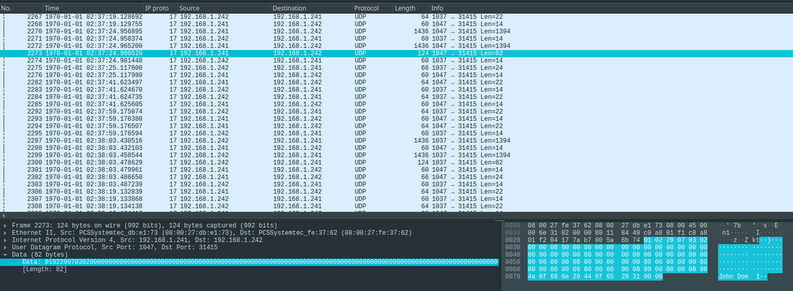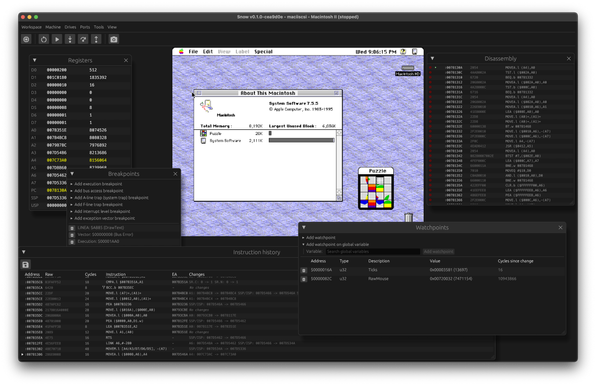Mäh W.
- 358 Followers
- 731 Following
- 3.5K Posts
Great! A bunch of us here wanted it. Now it exists. 👍
It's a "dark archive" of the arXiv - a non-public backup to save the data in case of attack by hackers or the US government. The arXiv, I hope you know, is the biggest source of modern math and physics papers.
Who got the job done? The TIB: the Technische Informationsbibliothek, run by the Leibniz Information Centre for Science and Technology, in Hannover, Germany.
They write:
"The TIB has now set up a so-called dark archive for the arXiv content in order to be able to make the backed-up data accessible if the data stored in the USA is lost. The archive functions as a silent reserve: the complete copy of the content is stored decentrally at the TIB, but is not publicly accessible. This means that the data stock – almost 10 terabytes – is protected against potential outages and can be activated in an emergency.
The TIB is currently working on processes to keep the archive up to date: new submissions and updated versions must be backed up regularly in order to preserve the state of research as completely as possible.
“Building a Dark Archive is an expression of our longstanding commitment for a reliable, international academic provision, and as a partner of arXiv. Even though the Dark Archive today only works in the background, it is a key element in safeguarding digital research contents in the long term, because in case of a crisis, we could open the archive,” explains Dr Irina Sens, Deputy Director of the TIB."
We should call it the darXiv.
More details here:
https://blog.tib.eu/2025/05/14/protecting-science-tib-builds-dark-archive-for-arxiv/

Protecting Science: TIB builds Dark Archive for arXiv - TIB-Blog
Research and science are international; it is not for nothing that we speak of international specialist communities. Although a service such as arXiv is operated by an institution based in the USA, namely Cornell University, it is used by researchers worldwide. Part of arXiv‘s funding has also been internationalised since 2010 with the introduction of arXiv membership. The TIB finances the German contribution together with the Helmholtz Association of German Research Centres (HGF) and the Max Planck Society (MPG). The TIB has now set up a so-called dark archive for the arXiv content in order to make the backed-up data accessible in the event that the data located in the USA is lost.
In short, I can say for now I'm beat. (Or that at least I'm not willing to invest more time in this right now.)
I started this thread with the idea to explore a bit how things worked. I thought maybe it was a simple protocol which I could figure out and send some trains! Turns out it's not that simple.
But still, I found a few interesting things both in terms of gameplay and on how things work in the background to support that experience. So I still consider this a success in that regard.
When a train crosses back and forth there's clearly a different message that's sent, with UDP data size of 82 bytes.
At the end of this packet is "John Doe" followed by two null bytes. John Doe was who sent the train.
The first six bytes of the message are non-null. I suspect they will relate to the types of train carriages and maybe directionality and speed of the train.
But it's too soon to understand the messages. I have to send more trains to figure this out! 😁
A brand new 68k Mac emulator quietly dropped last night!!
“Snow” can emulate the Mac 128k, 512k, Plus, SE, Classic, and II. It supports reading disks from bitstream and flux-floppy images, and offers full execution control and debugging features for the emulated CPU. Written using Rust, it doesn't do any ROM patching or system call interception, instead aiming for accurate hardware-level emulation.
Download link (Mac, Windows, Linux): https://snowemu.com
Documentation link: https://docs.snowemu.com
Source link: https://github.com/twvd/snow
Release announcement: https://www.emaculation.com/forum/viewtopic.php?t=12509
(Edit: I'm not the author - just spotted this on the Emaculation forum and had to share it!)
(Edit #2: Snow's author, Thomas “twvd" has joined the Fediverse now! Give him a follow at @twvd 👋)
#RetroComputing #VintageMac #Apple #Mac #MacOS #ClassicMac #68k #emulation
Just to prove that the whole thing actually works:
(RP2350 CnC... part 1)
in den nächsten Wochen habe ich das Glück, beruflich nach China zu reisen. Das wird sicher klasse. Aber wie schütze ich meine digitalen Geräte? Am besten wohl gar nicht erst mitnehmen. Aber ich brauche Zugang z.B. zu E-Mails. Hat da jemand schon Erfahrung?
I'm curious to know how many people on the Fediverse are multilingual compared to non-multilingual.
How many languages are you fluent in (that is, you can either read, speak, and/or write it to get by in most situations)? Feel free to boost this to increase the sample size, and feel free to comment which languages you're fluent in!
| 1 | |
| 2 | |
| 3 | |
| 4 or more |



